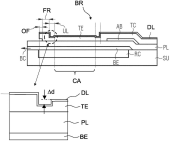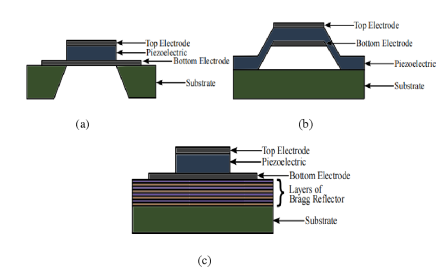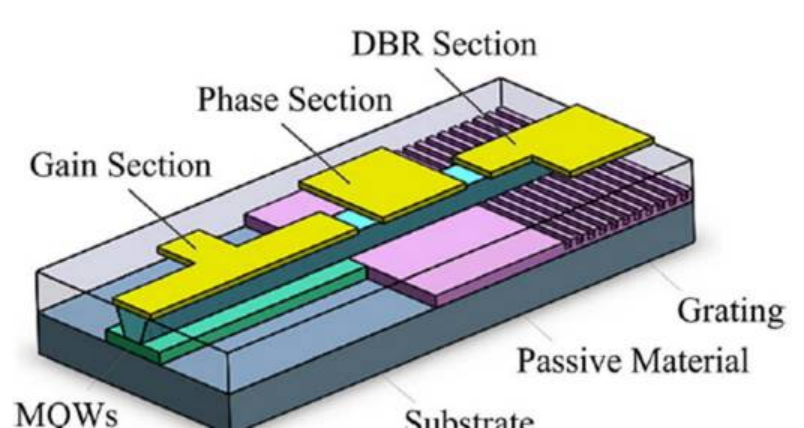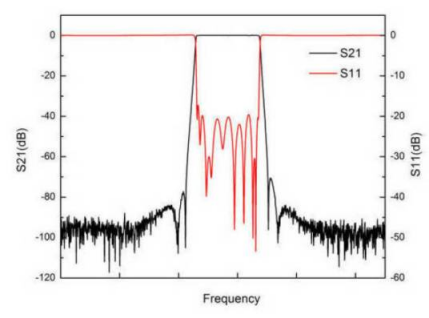一 Introduction to BAW Filters
Bulk Acoustic Wave (BAW) filters are advanced radio frequency (RF) components widely used in modern wireless communication systems. They enable precise signal filtering in high-frequency bands, making them critical for 5G networks, smartphones, Wi-Fi 6/6E, and IoT devices. Unlike traditional Surface Acoustic Wave (SAW) filters, BAW filters operate at higher frequencies (2–40 GHz) with superior power handling, temperature stability, and quality factor (Q-factor).
Key Features:
l High-frequency operation (ideal for 5G mmWave).
l Low insertion loss (<1 dB in passbands).
l Excellent thermal stability (minimal frequency drift).
l Compact size and compatibility with semiconductor processes.
二 Working Principle of BAW Filters
BAW filters rely on the propagation of acoustic waves through a piezoelectric material. The core component is a piezoelectric resonator, where electrical energy is converted into mechanical vibrations (acoustic waves) and vice versa.
Resonance Mechanism
1. Piezoelectric Layer: A thin film of piezoelectric material (e.g., aluminum nitride, AlN) is sandwiched between two metal electrodes (Figure 1).
2. Electrical Input: An alternating voltage applied to the electrodes induces mechanical deformation in the piezoelectric layer.
3. Acoustic Wave Generation: The deformation creates bulk acoustic waves that travel vertically through the material.
4. Resonance: At specific frequencies, the thickness of the piezoelectric layer corresponds to half the wavelength of the acoustic wave, forming a standing wave (resonance). This resonance defines the filter's passband.
Figure 1: Basic BAW Resonator Structure

三 Types of BAW Resonators
Two primary BAW resonator designs are used in commercial filters:
a) Film Bulk Acoustic Resonator (FBAR)
l Structure: The piezoelectric layer is suspended over an air cavity (Figure 2).
l Advantages: High Q-factor, excellent power handling.
l Applications: Cellular front-end modules (e.g., 4G/5G bands).
Figure 2: FBAR Structure

b) Solidly Mounted Resonator (SMR)
l Structure: The piezoelectric layer is mounted on an acoustic reflector (Bragg mirror) made of alternating high/low-impedance material layers (Figure 3).
l Advantages: Robust thermal stability, reduced substrate losses.
l Applications: Wi-Fi and automotive radar systems.
Figure 3: SMR Structure

四 Filter Design and Frequency Response
BAW filters are constructed by coupling multiple resonators in ladder or lattice configurations. The interaction between series and shunt resonators creates sharp roll-off and high out-of-band rejection (Figure 4).
Key Parameters:
l Passband: Determined by resonator thickness and material properties.
l Bandwidth: Adjustable via electrode design and coupling.
l Insertion Loss: Minimized through low-resistance electrodes (e.g., molybdenum or tungsten).
Figure 4: BAW Filter Frequency Response

五 Advantages Over SAW Filters
l Higher Frequency Range: SAW filters are limited to ~2.5 GHz, while BAW filters handle up to 40 GHz.
l Thermal Stability: BAW filters show <10 ppm/°C drift vs. SAW's ~30 ppm/°C.
l Power Handling: BAW withstands up to 10 W, ideal for macro-cell base stations.
六 Applications of BAW Filters
l 5G Networks: Filtering mmWave (24–40 GHz) and sub-6 GHz bands.
l Smartphones: Front-end modules for carrier aggregation.
l Automotive Radar: 77 GHz collision avoidance systems.
l Satellite Communications: Low-noise filtering in Ka-band.
七 Conclusion
BAW filters are indispensable in modern RF systems due to their high performance, miniaturization, and compatibility with semiconductor scaling. As wireless standards evolve, BAW technology will continue to drive innovations in connectivity, enabling faster data rates and lower latency in next-generation networks.
AFU TELECOM is a Wireless Telecom Solution Expert with professional supporting on our customers' business globally. AFU TELECOM is always focusing on and specializing in O-RAN, Marco Cell, Small Cell, Active DAS, Public Safety and Optics Network Solutions including Antennas, Filters/Combiners/TMAs, RF Repeaters, Optics Devices and Site Accessories, especially AFU Core Team are very professional in Wireless Telecom with rich experience on our product portfolios. The Highest Priority of AFU TELECOM is Customers' Satisfaction and Product Quality. AFU MISSION IS TO CONNECT EVERYTHING!

